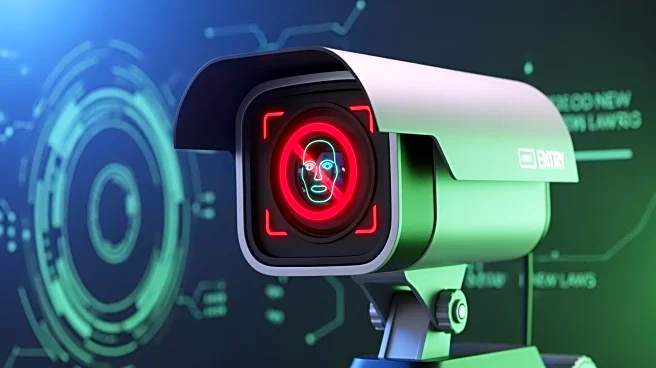What's Happening?
The Scottish National Party (SNP) has passed a resolution at its annual conference opposing the deployment of live facial recognition technology by Police Scotland unless new legislation is enacted to regulate its use. The resolution, introduced by party
member Erin Lux, highlights concerns over the lack of parliamentary debate and regulation surrounding the technology, which has been used in England and Wales since 2016. Lux emphasized that live facial recognition effectively turns individuals' faces into mandatory ID cards, raising issues of privacy and potential bias in its application. The resolution follows previous attempts by Police Scotland to implement the technology in 2020, which were halted due to public and parliamentary criticism.
Why It's Important?
The SNP's resolution underscores significant concerns about privacy, civil liberties, and potential biases in the use of facial recognition technology. The technology's deployment without proper legislative oversight could lead to increased surveillance and potential misuse, affecting public trust in law enforcement. The opposition from the SNP reflects broader debates on the balance between security and individual rights, with implications for how biometric data is managed and regulated. This development could influence similar discussions in other regions, highlighting the need for comprehensive legal frameworks to govern emerging technologies.
What's Next?
The resolution may prompt further discussions within the Scottish Government regarding the regulation of facial recognition technology. Stakeholders, including civil rights groups and technology experts, are likely to engage in debates about the ethical and legal implications of such technologies. The SNP's stance could lead to legislative proposals aimed at ensuring transparency and accountability in the use of biometric data. Additionally, the resolution may influence other political parties and regions to reconsider their approach to facial recognition technology, potentially leading to broader regulatory changes.
Beyond the Headlines
The opposition to facial recognition technology by the SNP highlights deeper concerns about the role of technology in surveillance and its impact on civil liberties. The debate raises questions about the ethical use of biometric data and the potential for discrimination based on how the technology is deployed. Long-term implications include the need for robust legal frameworks to protect individual rights and prevent misuse of technology by authorities. This development may also contribute to a growing movement advocating for privacy rights in the digital age.

















